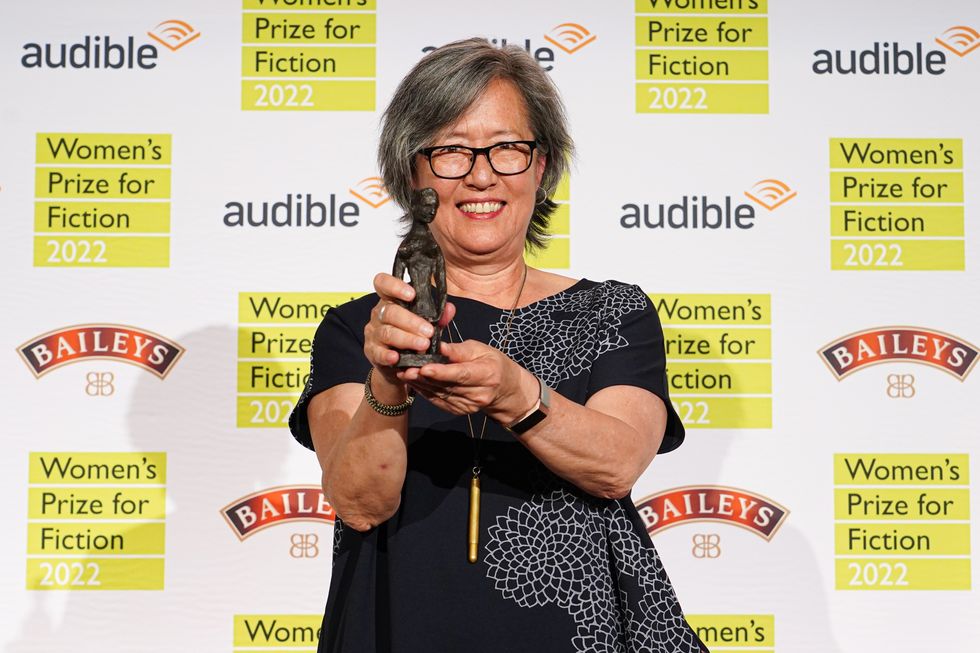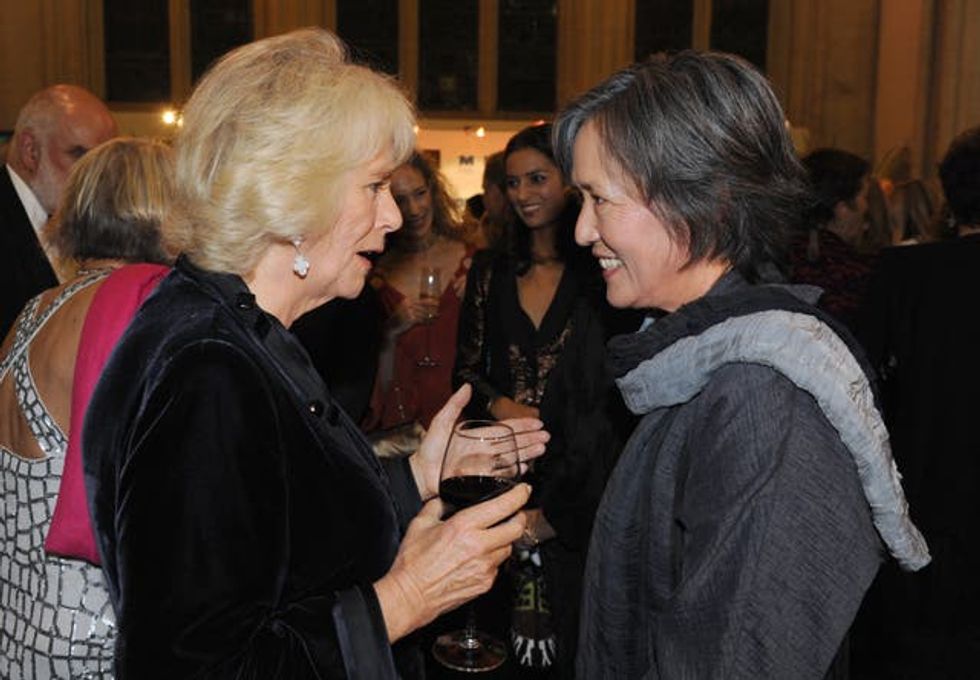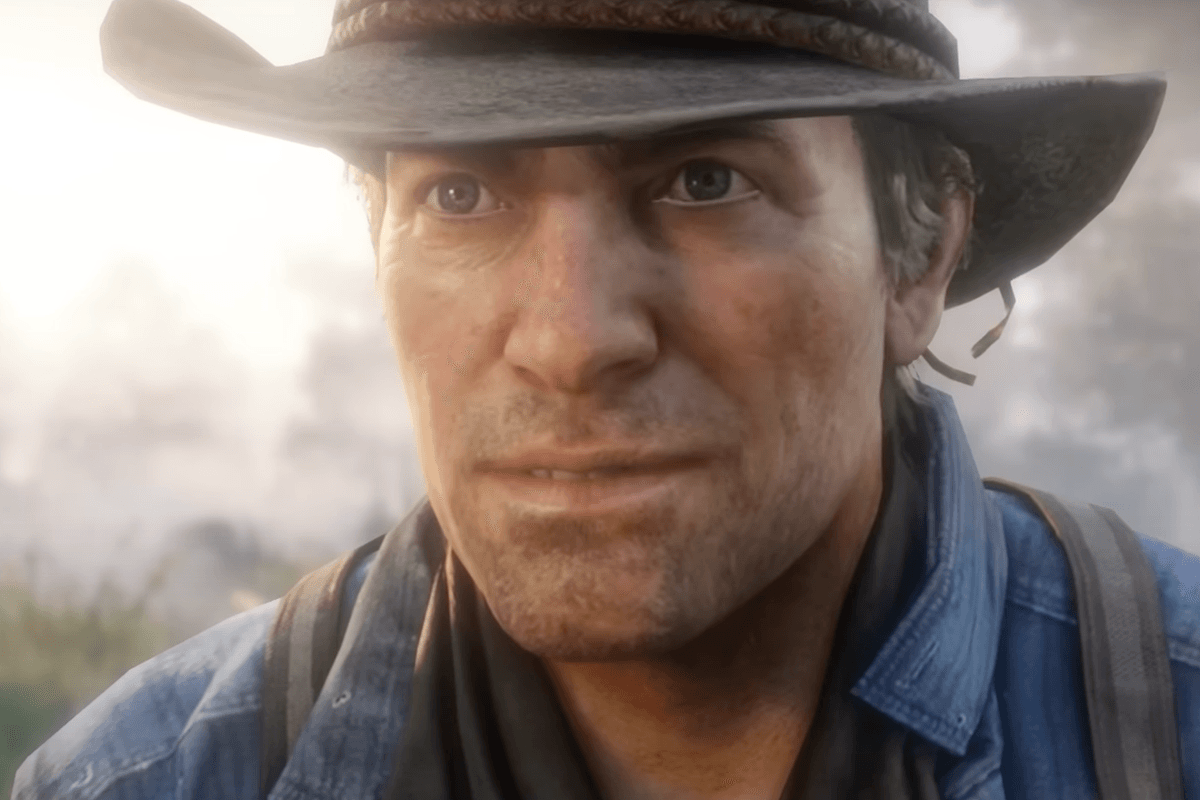News
Ellie Iorizzo
Jun 15, 2022

Ruth Ozeki (Ian West/PA)
PA Wire/PA Images - Ian West
Ruth Ozeki has said winning the Women’s Prize for Fiction for The Book Of Form And Emptiness is a “wonderful by-product” of an eight-year process.
The 66-year-old American-Canadian author scooped the prestigious literary prize on Wednesday evening with her fourth novel.
After her win, Ozeki told the PA news agency she “completely did not expect this at all”.
She said: “It’s kind of crazy. I feel like I am a person who doesn’t win prizes – it’s lovely to be nominated but I never, ever think it will go beyond that, and in this case in particular the Women’s Prize does such a wonderful job of bringing us all together and it feels very strange to have actually won.
“I feel in a way it is very random because I read all of the other books and they are amazing, so it just feels odd and random and wonderful. I am very happy too.
“I don’t write books to win prizes, it is a wonderful by-product.”
And the 2022 winner of the Women’s Prize for Fiction is… Ruth Ozeki with The Book of Form and Emptiness. Congratul… https://t.co/2kcXOBODFz— Women's Prize (@Women's Prize) 1655317468
Ozeki’s winning novel – published by Canongate Books in September 2021 – explores loss, growing up and our relationship with the things that surround us, through the story of a grieving teenage boy.
She added: “I spent eight years writing it and the entire eight years was an internal struggle to try and understand how the characters would feel about the various things that were happening to them.
“I think I write a book in order to spend time thinking about questions, and in this case I was thinking about questions to do with voices, mental health and consumer culture.
“I was very happy to be finished writing it but I am not thinking at all about reception when I am writing it, I am just trying to write the book that seems to want to be written – and in this case the book is the narrator of itself.
“I was very aware that the book had its own opinions about how it wanted to come out and appear on the page and that was fun. I enjoyed that.”

Her win follows the success of A Tale From The Time Of Being, which was shortlisted for the 2013 Man Booker Prize and translated into 28 languages.
Other works by Ozeki include My Year Of Meats, All Over Creation and a short memoir titled Timecode Of A Face.
This year’s judges included journalist and chair of the panel Mary Ann Sieghart, as well as writers Dorothy Koomson, Anita Sethi, Pandora Sykes and Lorraine Candy.
Sieghart said: “In an extraordinary year for fiction written by women, and from an incredibly strong shortlist, we were thrilled to choose Ruth Ozeki’s The Book Of Form And Emptiness, which stood out for its sparkling writing, warmth, intelligence, humour and poignancy.
“A celebration of the power of books and reading, it tackles big issues of life and death, and is a complete joy to read.”
She added that Ozeki, who is also a filmmaker and Zen Buddhist priest, is a “truly original” and “masterful storyteller”.
Now in its 27th year, the prize was open to original fiction written in English by women from anywhere in the world.
Other titles vying for the prize included Pulitzer Prize-winning author Louise Erdrich for her 23rd novel, The Sentence, which explores identity, exploitation and how the burdens of history still shape our lives today.
Also shortlisted was Elif Shafak for The Island Of Missing Trees; Maggie Shipstead’s novel Great Circle; The Bread The Devil Knead by Lisa Allen-Agostini and Meg Mason’s Sorrow And Bliss.

Ozeki was announced the winner at a ceremony in central London, and takes home a £30,000 prize endowed by an anonymous donor and the Bessie, a limited edition bronze figure created by Grizel Niven.
Last year’s winner was Jonathan Strange & Mr Norrell author Susanna Clarke for her novel Piranesi.
Top 100
The Conversation (0)












